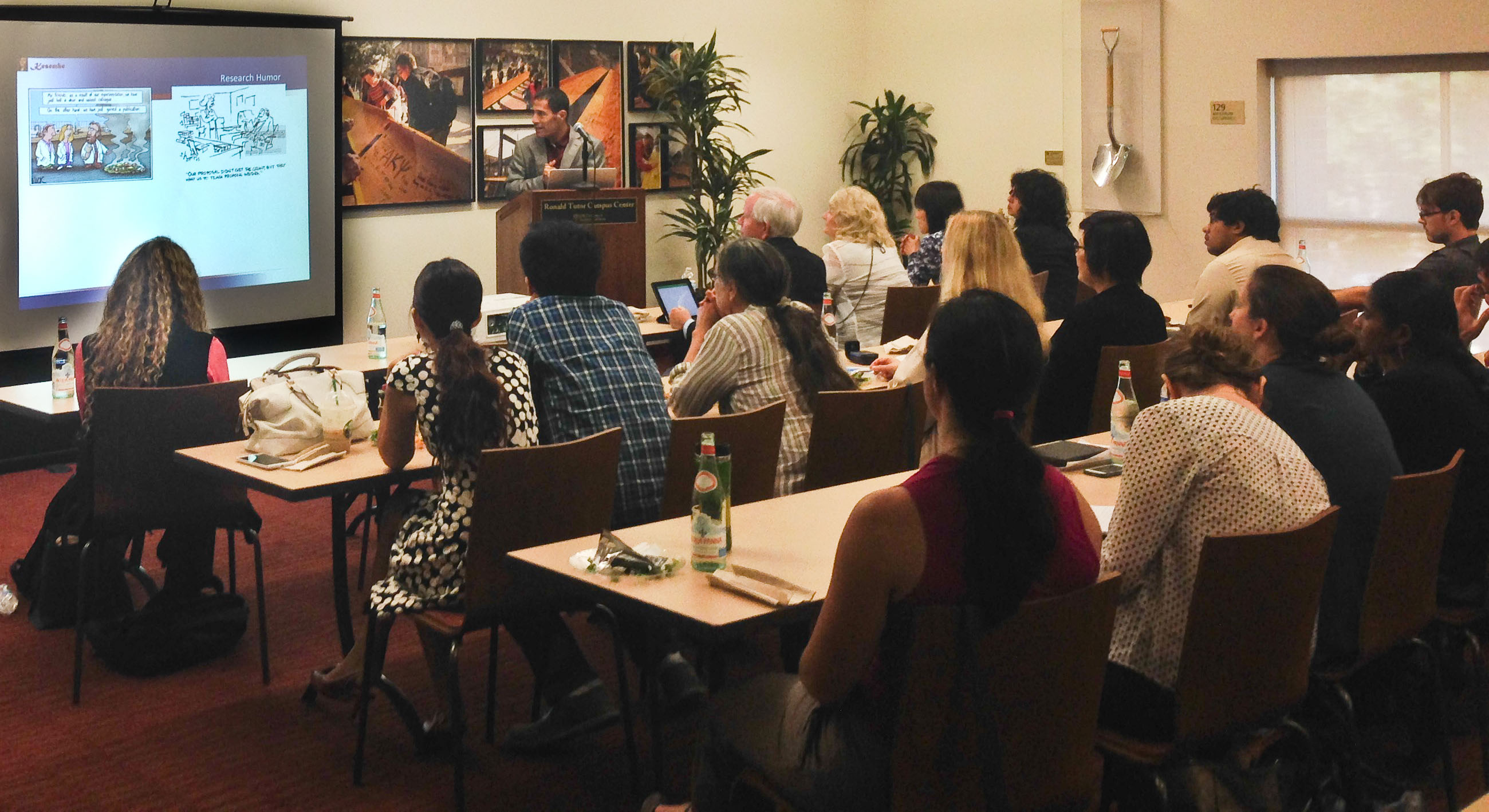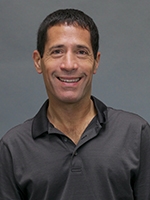Mobile Technology Expert Noam Ziv Discusses Process and Pitfalls of Innovation at USC Mobile Health
Product developers must overcome obstacles like changing technologies, the needs of investors and consumer demands.
Mobile health computing promises countless breakthroughs in healthcare and research, but the development of successful applications will require new levels of collaboration between teams of health care researchers and clinicians, technologists and businesspeople, according to Noam Ziv, a veteran mobile product developer and industry thought leader.
"mHealth systems are complex systems, in terms of technology and the marketplace," said Ziv, former senior director of business development at wireless telecommunications and semiconductor leader Qualcomm, Inc., where he was one of the original architects of the CDMA wireless communications technologies that now connect millions of people worldwide. He is now CEO of mobile health technology startup Kesembe Inc.
Ziv was the featured speaker before a packed room at the USC mHealth Collaboratory's Mobile Health Seminar, the second of six planned for the year.
"Noam provides invaluable perspective and knowledge from the world of technology-based product design that academics can benefit from as they pursue mobile health research and interventions," said Donna Spruijt-Metz, PhD, director of the mHealth Collaboratory at the Dornsife Center for Economic and Social Research, and adjunct associate professor of Preventive Medicine at Keck School of Medicine and of Psychology at USC.
Ziv discussed the pressures and obstacles that mobile health innovators must manage. These include the fast pace of change and obsolescence in technology, the financial realities of investors and venture capital, and the demands of the marketplace.
He further described the impact of these forces on his ongoing efforts, in partnership with BioRibbon, to develop a mobile-enabled patch that can monitor and collect several days’ worth of hydration and other metabolic data from patients.

Noam Ziv
"Even though something may be a good idea, you have to consider who wants it, and what's the market for it," said Ziv.
Showcasing Cutting-Edge Mobile Health Research at USC
Following Ziv's presentation, four teams of mobile health researchers and product developers from USC and the business community presented their mobile health projects and met with attendees interested in mobile health tools and applications. This show-and-tell session included:
- Mobile Teen App – Presented by Genevieve Dunton, PhD, MPH, assistant professor in the Department of Preventive Medicine, Keck School of Medicine, with Eldin Dzubur, a PhD student in the Department of Preventive Medicine. Their smartphone app was designed to accurately measure and record physical activity by combining self-reporting and objective measurement methods, to help researchers understand how activity relates to health.
- IPILab and Imaging Informatics – Presented by Sneha K. Verma, a PhD Student in the Department of Biomedical Engineering, research assistant in the Image Processing and Informatics Lab (IPILab). The IPILab is developing mobile health tools for applications in computer aided diagnosis, radiation therapy, rehabilitations trials, biomechanics and pain classifications. These platform independent tools can analyze large amounts of data in real time. IPILab provides completely customizable systems integration solutions.
- Anti-aging brain games and brain fitness tips – Presented by Elizabeth Amini, CEO, of Anti-AgingGames.com, a maker of evidence-based computer games designed to improve or maintain cognitive functions such as memory, concentration, executive thinking, problem solving, and more. The company's games are also being studied for use in stroke recovery.
- The USC D-Health Lab – Presented by Prashant Samant and Jared Goodner, Directors and co-founders. The D-Health Lab helps researchers, students, and professionals rapidly develop new information technology (IT) solutions for healthcare. They plan to provide USC students and faculty access to technology and mentors, such as healthcare providers and businesspeople, as well as anonymized patient health data to enable the development of pilot applications. The D-Health Lab can shorten the concept-to-pilot timeline from 12 or 18 months down to just three months, according to Samant.
An archived video of the seminar can be viewed here.
Anyone interested in mHealth or future mHealth Collaboratory events may contact Spruijt-Metz at dmetz@usc.edu to learn more.
The USC mHealth Collaboratory was established in the summer 2014 to serve as a nexus for mobile health innovation within USC and throughout Southern California's academic and business community. The Collaboratory brings together expertise and interests in healthcare, research, computers, wireless and network technology, smartphones, wearable sensors, and more, said William Swartout, co-director of the mHealth Collaboratory, professor in the USC Viterbi School of Engineering Computer Science Department, and chief technology officer at the USC Institute for Creative Technologies (ICT).



